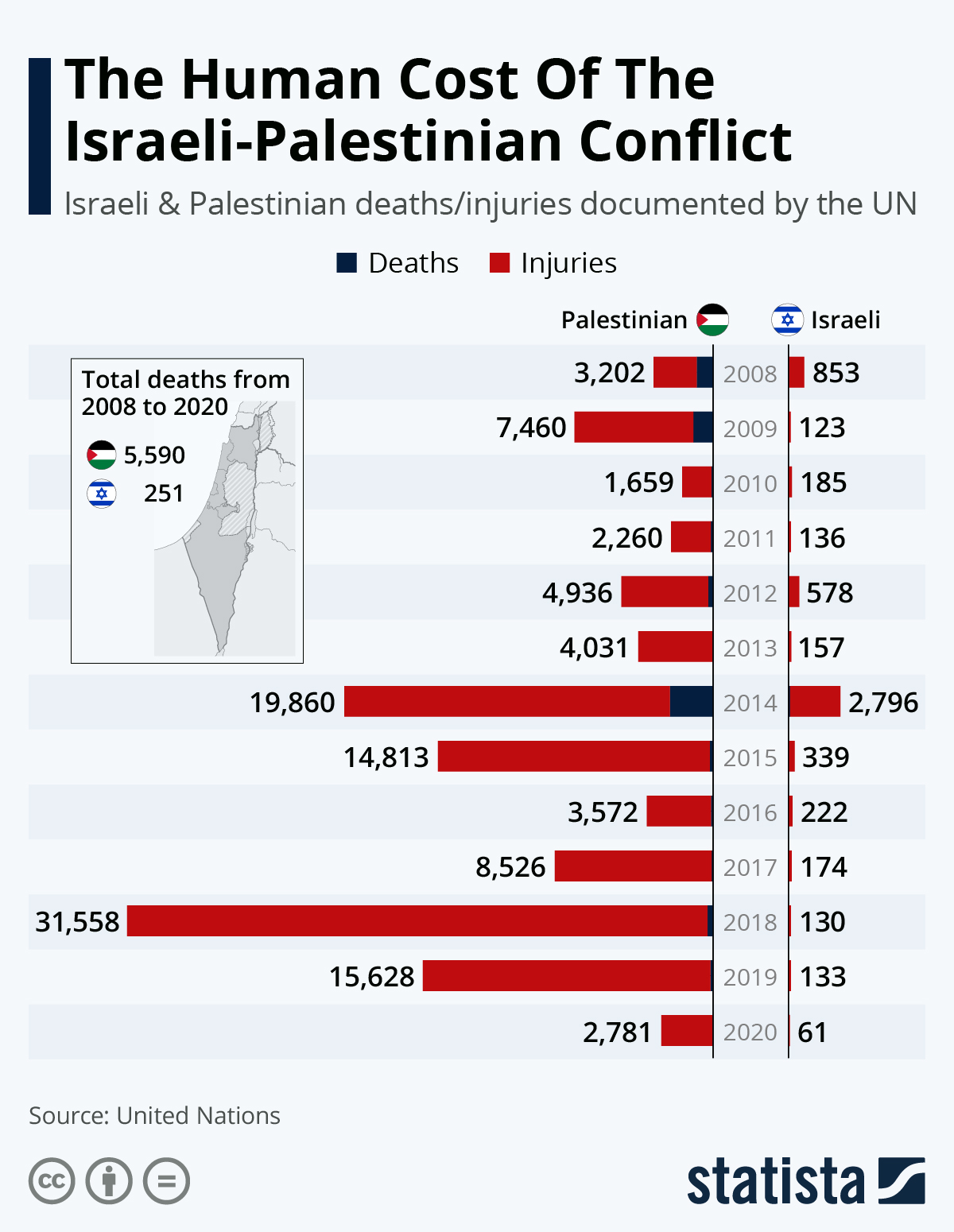Violence has broken out after weeks of tension stoked by violent clashes between Israeli police and Palestinian protestors in Jerusalem. Israel has carried out heavy airstrikes in Gaza with the Hanadi tower, a combined office and apartment complex owned by Hamas, targeted and destroyed. The militant group has fired rockets towards major Israeli cities including Tel Aviv, Ashkelon and Beersheba with one volley of 130 projectiles thought to be the single largest barrage ever seen. Footage posted on social media shows Israeli Iron Dome missiles intercepting many of the incoming rockets as air raid sirens blared in the background.
Since the upswing in violence on Monday night, 35 people have been killed in Gaza while there have been five deaths in Israel. UN Middle East envoy Tor Wennesland urged both sides to "stop the fire immediately", stating that "we're escalating towards a full-scale war". Meanwhile, Israeli Defense minister Benny Gantz said that "this is just the beginning" of Israel's strikes while Hamas leader Ismail Haniyeh warned that "if Israel wants to escalate, we are ready for it". Unfortunately, such violence and rhetoric are nothing new in a conflict that has killed thousands of people over the last ten years alone.
The United Nations Office for the Coordination of Humanitarian Affairs (OCHA) has been tracking deaths in the conflict since 2008 and its data shows that 5,600 Palestinians died up to 2020 while 115,000 were injured. 250 Israelis died during the same period while 5,600 were injured. Violence was especially high in 2014 when Israel conducted Operation Protective Edge in Gaza in response to the kidnapping and murder of three teenagers. The campaign lasted seven weeks and resulted in more than 2,000 deaths, the majority of which were Gazan. Major protests also erupted in 2018 along the Israel Gaza border which saw more than 28,000 Palestinians injured.





















